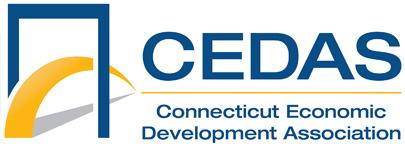
4 minute read
Put Your Best Foot Forward:
Making the case for CEDAS’ Best Practices Program
by Kevin Bielmeier, President of CEDAS
CEDAS, the Connecticut Economic Development Association, a not-forprofit membership organization committed to advancing the practice and process of economic development in Connecticut, launched the Best Practices in Economic Development & Land Use Certification Program in 2019.
But the seeds of this program began long before, in conversations had by a variety of professionals whose work intersected one another in the arena of economic development. These individuals from varying sectors — developers, commercial brokers, land use officials, attorneys, project managers, economic developers, and more — shared with one another the process projects go through, from concept to fruition — if they even make it that far — in towns where they did work. They discussed the disparity of the practice of economic development from municipality to municipality. From these conversations an idea was formed: What if there were a set of principles, a series of best practices, that municipalities could follow or emulate?
In 2017, these initial individuals, many of whom were CEDAS members, decided to put this idea into action. They extended the invitation to many, and they gathered in Berlin, CT at Eversource headquarters, to brainstorm with whiteboards, post-it notes and colored markers. I attended, serving at the time as New Milford’s Economic Development Director. The outcome of this think tank session was a rough outline of what two years later would become CEDAS’ Best Practices in Economic Development & Land Use Certification Program.
The program aimed to encourage best practices in municipal economic development and land use to spur continuous improvement. It further aimed to create an open resource library of model development examples that can be used by municipalities to update their policies and practices.
The program was also intended to drive communities to pursue excellence in land use and economic development practices and to recognize the communities that have established best practices. In pursuit of these best practices, planners and economic developers today can use this program to engage community stakeholders in discussions about how to achieve higher standards and develop creative, community-specific ways to implement them.
The first year, 2019, towns and cities who successfully completed applications received silver and bronze levels of certification. There were no golds the first year, but not because of an absence of any deserving municipalities, but rather, because the gold standards were not yet developed when the program began.
Certification is good for three years, after which recertification is required. The 2022-2024 recipients of Gold, Silver and Bronze awards can be found listed on the CEDAS website: https://cedas.org/resources/ ct-best-practices-in-land-use-economic-development/
The Best Practices Certification Program requires an application to be completed documenting various economic development and land use practices, policies, and programs taking place at the local level. The application contains four components:
Communications & Marketing
Coordination & Collaboration
Organizational Capacity & Strategy
Policies & Programs
The 2026 application period opened July 7 and extends through August. You can access the application online at www.cedas. org. I strongly encourage all of our state’s municipalities to participate. There is no cost to do so, and going through the exercise is quite informative, reinforcing what a town is doing well and revealing areas for improvement. Put your best foot forward and see where you stand in comparison to your peer municipalities, be rewarded for doing so, and learn something in the process.
It is open to all municipalities, not just those who are members or connected to CEDAS. Participating towns and cities will receive their 2025 Best Practices Awards at the CEDAS Annual Meeting and Awards Ceremony, held on October 30th.
Questions regarding the program can be directed to the CEDAS Best Practices Program development committee chairs Sabrina Godeski at sgodeski@norwalkct. org or Aaron Marcavitch at amarcavitch@ enfield.org










